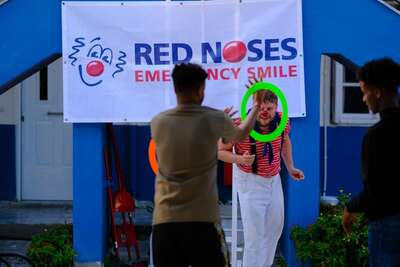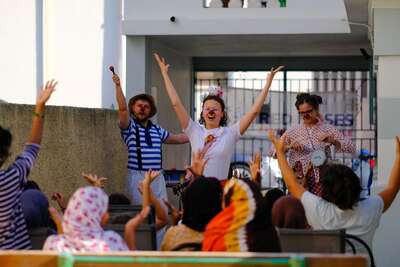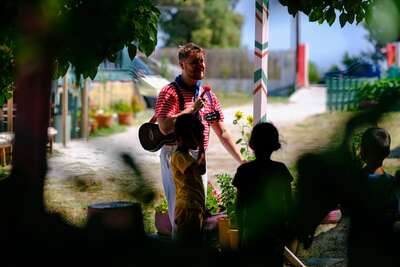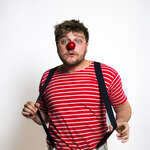#MeetTheArtist: Aleš Surma
When Aleš Surma puts on his red nose, something special happens. He’s no longer just a performer—he becomes a source of lightness in places where joy can be hard to find. As one of the 30 Emergency Smile clown artists, Aleš brings laughter, warmth and connection to people facing incredibly difficult circumstances.
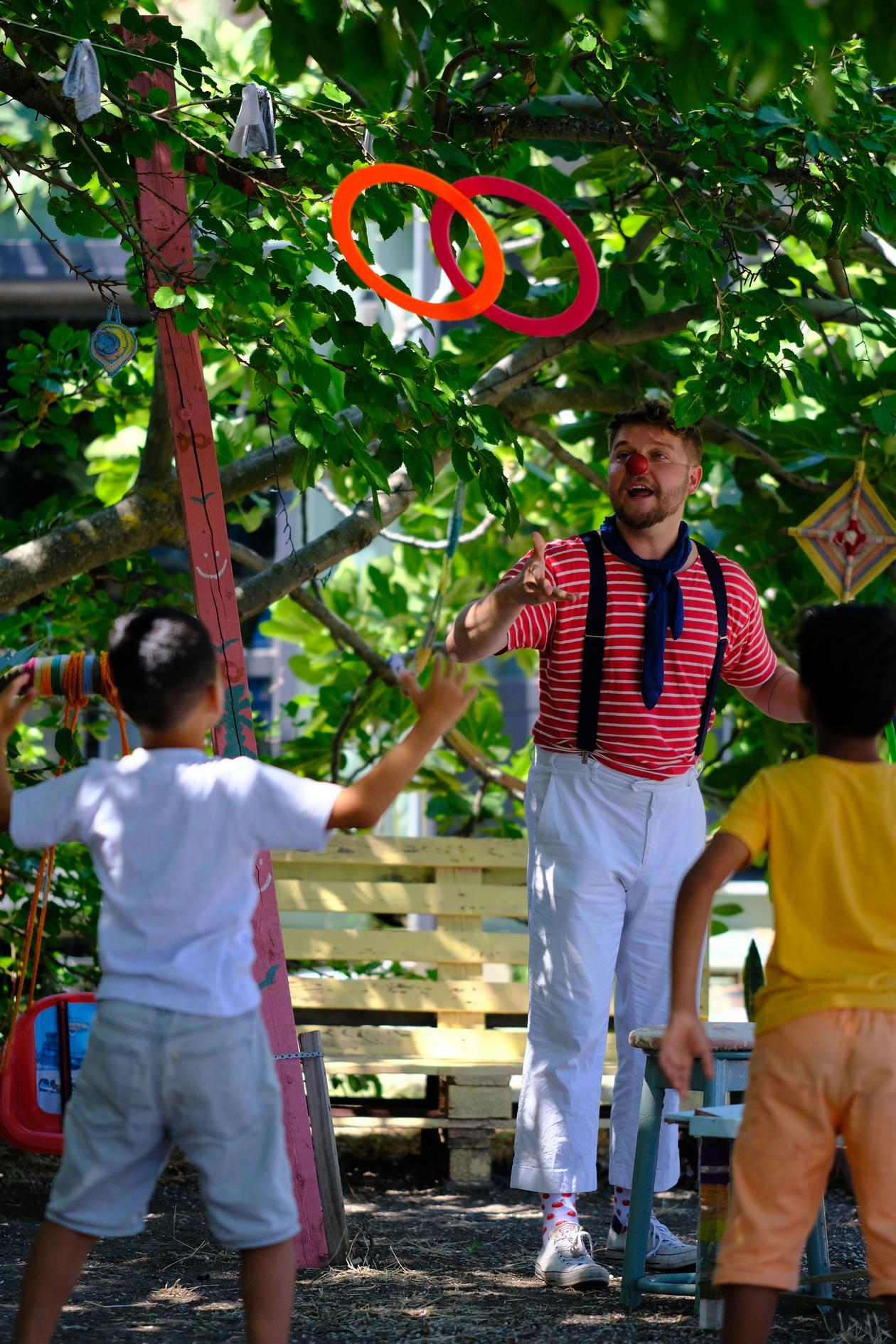 Enlarge photo
Enlarge photoSince joining the international Emergency Smile team in 2022, Aleš has travelled to crisis-affected communities, using his skills in slapstick, acrobatics and physical comedy to reach people across language and cultural barriers.
In this interview, Aleš talks about his clown characters, the power of laughter, and what keeps him inspired on—and off—the red nose path.
Can you tell us about yourself and your clown character?
My name is Aleš Surma. I have two clown names. For RED NOSES Czech Republic, I'm Roreis, a name I took from a theatre role I had years ago—a detective called Doctor Theodor Roreis. For Emergency Smile, my character is Šimi. We created this character during our first mission, using the Pink Panther music. The name Šimi is easier to understand in multilingual communities.
In my last mission in Lesvos, I wore a different costume and felt a different energy with my character. I think this is normal. We all go through different phases in life; as life changes, our opinions change, and so do our characters and clown personalities. I'm open to this change.
What’s your clown superpower?
My superpower is slapstick and acrobatics, especially handstands. Since we work with people who speak different languages, it's important to use a lot of body language.
How does your work differ between hospitals and field missions?
The energy is very different when working with patients in hospitals compared to people experiencing displacement. Usually, our audiences in Emergency Smile have a much higher level of energy compared to the other audiences I work with, which I really enjoy.
I love fieldwork because it's very unpredictable. For me, it's about adapting every day to the audience and the people I work with.
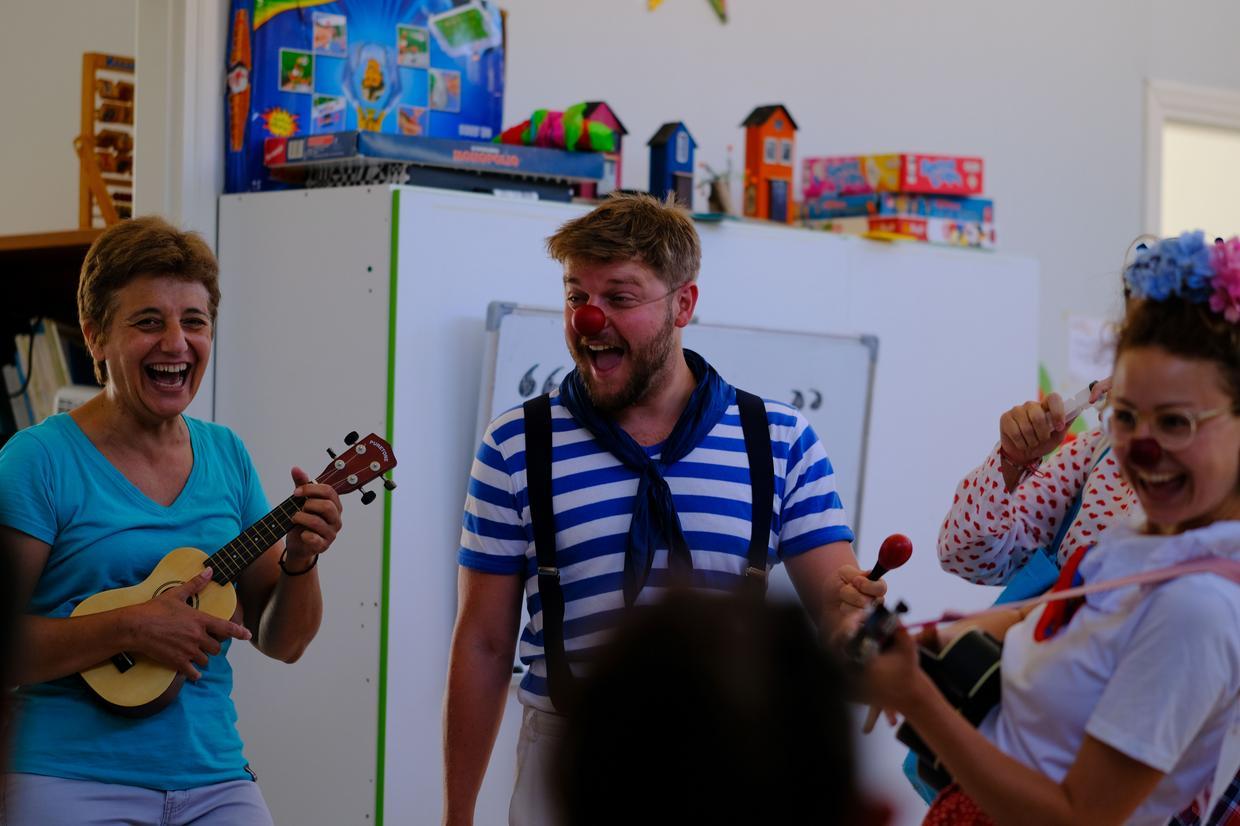 Enlarge photo
Enlarge photoWhat impact do you hope to have through your work?
It's very simple, but I hope to bring a positive impact.
What message do you want to share with the people you meet through your clowning?
Do not take yourself too seriously.
What motivates you in your role with Emergency Smile?
The Emergency Smile work is perfect for me; it's my dream job. Years ago, I wanted to join the team, but I had to work in hospitals for three years before applying. Now that I've reached this goal, I'm motivated to improve my techniques with Circus Smile formats and to improve my English as well!
Working in a team also helps keep me motivated. Before every mission, we discuss things like: ‘What do I need if I am angry?’ or ‘What do I need if I feel very tired?’ This helps us prepare as a team to face possible challenging situations.
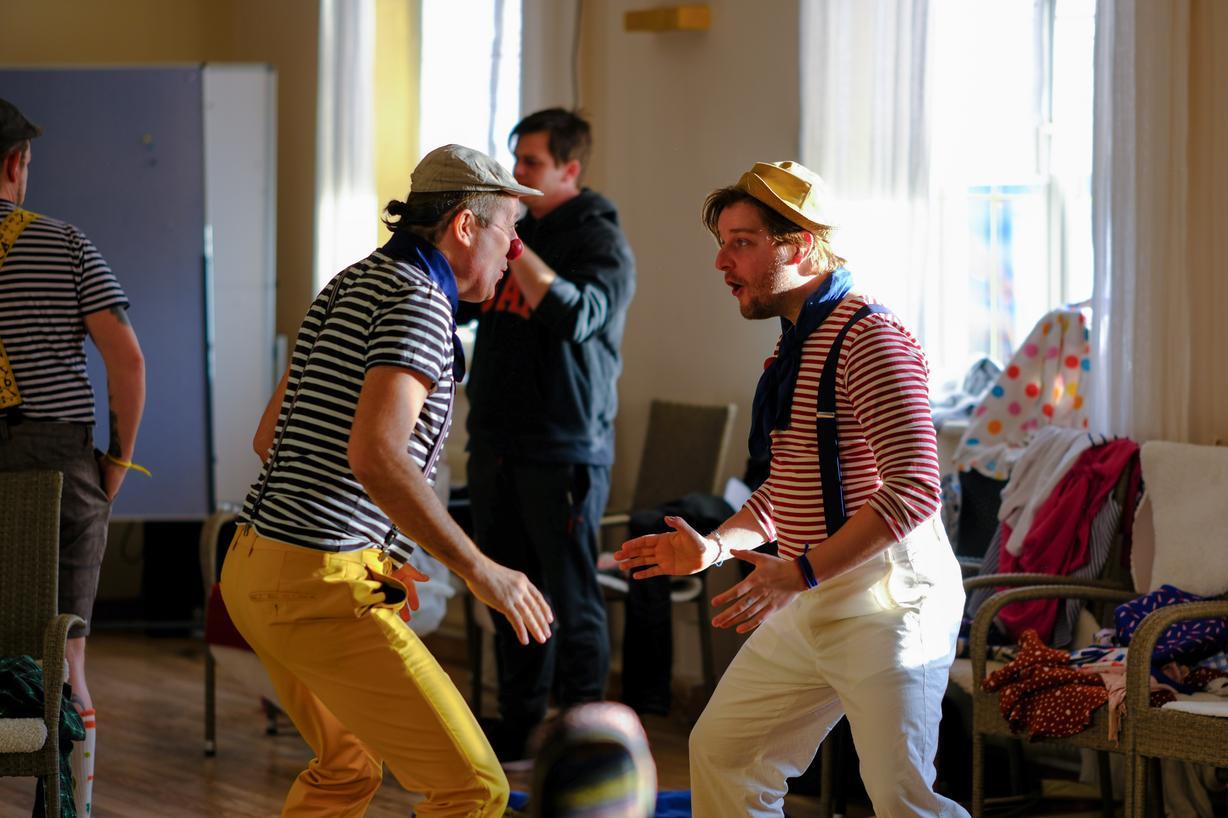 Enlarge photo
Enlarge photoWhy do you think clowning is so important for people going through challenging times?
I think for people who are going through a lot of struggles, we need to bring lightness into their lives and some laughter. It's much better to smile rather than focusing on all the bad things that happen in our lives or around us.
How did you get started in clowning?
I watched many movies as a kid with old comedians like Charlie Chaplin, Buster Keaton, and Czech performers, and I really liked them. One day, a friend told me, ‘Aleš, you are very crazy; you should go to an audition.’ I tried, and now I have been working for six years!
Can you share a memorable moment from your clowning experience?
There are many moments... I remember one time in the oncology department. A lady kept wanting to hear a song she liked a lot. I started singing, and she prepared her phone to film me. But soon, I saw her hand start going down, meaning she wanted to be in the moment, with no need to record it.

